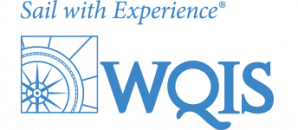NEW WASHINGTON STATE CERTIFICATE OF FINANCIAL RESPONSIBILITY REQUIREMENTS TO GO IN EFFECT JUNE 9, 2022

Washington State has enacted new legislation requiring State approved Certificates of Financial Responsibility (“COFR”) for Vessels (HB 1691). The dollar amounts of Financial Responsibility that shall be demonstrated for particular types of vessels are as follows:
1) Barges that transport hazardous substances in bulk as cargo: $5,000,000 or $300 per gross tonnage of the vessel.
2) Tank vessels that carry oil as cargo in bulk: $1,000,000,000.
( the Department of Ecology may set a lesser standard for Tank Vessels of 300 Gross Tons or less, but not in an amount less than that required under Federal Law).
3) Cargo or Passenger vessels that carry oil as fuel: $300,000,000.
4) Vessels that transport passengers and vehicles between Washington State and a Foreign Country: $600 per gross ton or $500,000 (whichever is greater).
5) Fishing vessels carrying predominantly non-persistent product: $133.40 per incident for each barrel of total oil capacity or $1,334,000 whichever is greater.
6) Fishing vessels carrying predominantly persistent product: $400.20 per incident for each barrel of total oil capacity or $6,670,000 whichever is greater.
The Washington State Department of Ecology is in the process of drafting and adopting rules for how it will issue the new State COFRs upon demonstration of Financial Responsibility by vessel owners. Under the new law Washington State will accept proof of Financial Responsibility in compliance with other States or the Federal Government provided that proof demonstrates a dollar amount equal to or greater than that required by Washington.
The new law gives the Washington State Department of Ecology (“DOE”) the power to reevaluate the validity of the COFRs it issues upon notification that a spill has occurred that may incur damages that exceed 25 percent of financial resources reflected by the Certificate. The DOE may revoke or suspend the COFR if it deems the source of the financial responsibility to be insufficient.
Failure to comply with Washington State’s new COFR law can result in criminal and civil penalties.
About WQIS
The Water Quality Insurance Syndicate (WQIS) is the largest, longest-running underwriter of vessel pollution liability insurance for vessels in the United States, offering the most comprehensive insurance products in the market. We insure all types of commercial and private marine risk and we will work with our customers to ensure we can provide best-in-class coverage for their specific risk.
We provide water pollution liability insurance from the smallest to the largest fleets for vessel operators worldwide, providing coverage for more than thirty thousand (30,000) vessels, pollution guaranties for over three thousand five hundred (3,500) vessels, and have cleaned up over five thousand (5,000) spills in our history. WQIS offers insurance on behalf of ten (10) subscribing insurance companies in the Marine Insurance Market (see Subscribers for details).
As the leader in the marine pollution insurance industry for nearly 50 years, and in representing many of the world’s largest insurance providers, we offer unparalleled collective strength in underwriting, claims, and spill management and response. In the past five decades, WQIS has been involved in more vessel pollution events than any other marine pollution provider. Having the right team available to assist in the event of a loss and throughout the entire spill response is crucial for mitigating damages to the environment, supporting an efficient response, and also assists assureds in quickly returning to operational status. Our team is made up of an extensive network of trusted professionals that provide support from the moment a spill occurs until the spill is cleaned up.
